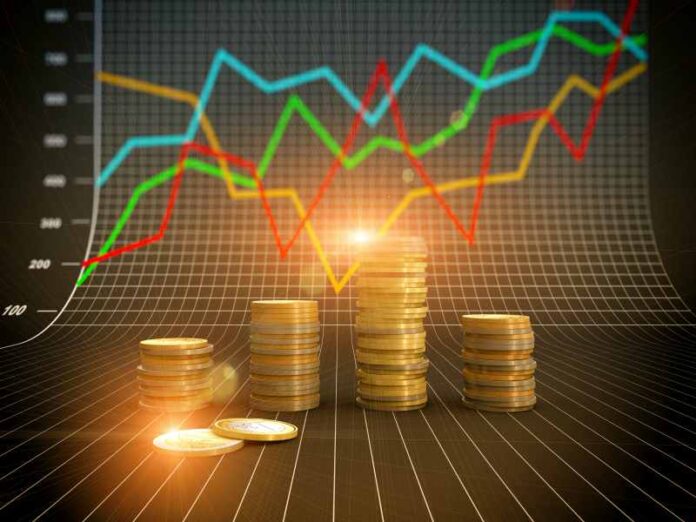By Ibukun Emiola
Nigeria started the year 2020 on a glorious note, having been declared, by the World Bank, one of the most improved economies in the world in the first quarter, with investors and producers looking forward to having robust activities.
This excitement was, however, cut short with the outbreak of Novel Coronavirus (COVID-19) pandemic in the country on Feb. 27, 2020.
Like other economies, Nigeria came under a heavy attack by the pandemic which pushed it into recession as lockdowns, restrictions, fall in oil price to as low as $24.93 per barrel, and many more characterised year 2020.
Nigeria, Africa’s biggest economy, entered recession in 2020 for the second time in four years, after a contraction in its gross domestic product for a second consecutive quarter.
Data from the National Bureau of Statistics (NBS) in November 2020 shows that only about six states in Nigeria earn Foreign Direct Investment (FDI) in Quarter (Q)3, with Lagos topping the table.
It also indicates that the amount of FDI that came into the country has reduced significantly over the years.
By November 2020 also, inflation rate stood at 14.89 per cent from 14.23 per cent in October 2020, taking toll on Nigerians, deepening the poverty line.
It was the highest inflation rate since January 2018, as food inflation hit a near three-year high of 18.3 per cent.
The effects of COVID-19 is clearly seen in all sectors. COVID-19 led to loss of revenue for governments, closure of companies, reduced production, retrenchment of workers and more undesirable developments.
Analysts regret that the present administration’s efforts to ensure an enabling business environment were frustrated by COVID-19 pandemic.
According to them, the Muhammadu Buhari-led administration has taken steps to diversify the economy to non-oil-driven, particularly agriculture, but the efforts suffered setbacks due lockdowns occasioned by the pandemic.
Determined to pull through in the face of COVID-19, the Federal Government through the Central Bank of Nigeria (CBN) provided support for various sectors including agriculture, they note.
Some economists and financial experts call for effective implementation of policies favourable to non-oil sector that will touch more, lives of an average Nigerian and increase the country’s GDP.
A policy economist, Dr Olumuyiwa Alaba, advises that the government should build sectors that will sustain naira in the face of crude oil price fall.
Alaba argues that if non-oil sector is not given more attention and the oil price not stabilised, Nigeria may not be able to do any capital project due to lean resources.
“It means we are going to borrow massively to sustain the budget, it means our debt profile will increase,’’ Alaba argues.
He says proactive measures are needed to sustain the economy in terms of strengthening macroeconomic fundamentals.
The economist is worried that inflation rate may keep rising if proper actions are not taken.
Alaba believes that the way forward is also to encourage value addition to domestic production.
“Whatever we are producing internally, whatever technology we will apply, we must ensure value addition. This is the time that the economy can actually come up.
“We have a booming rice trade in Nigeria now which is good. Nigerians are patronising Nigerian rice now, but the question is, what lessons have we learnt to sustain these gains?”
He is impressed at the Federal Government intervention fund for the production sector, describing it as a right step in the right direction.
“If the intervention gets to the right people, it will create employments, stimulate production and consumption so that the economy will grow.
“This must be ensured,” he urges.
He emphasises targeted spending toward consumption that will stimulate and promote domestic production.
“We should re-engineer production of raw materials supply chain in such a way that we will be able to produce our raw materials ourselves and be less dependent on the global supply chain.
“If we produce them internally, it means they will be cheaper,” Alaba adds.
A financial analyst, Mr Sola Famakinwa, is of the opinion that to stay afloat in spite of COVID-19 effects, the government should review its fiscal policy by reducing taxes for individuals and corporate bodies.
The President of Ibadan Chamber of Commerce and Industry, Chief Sola Abodunrin, hails Federal Government’s numerous interventions targeted at cushioning the effects of COVID-19.
“When there is recession, what the government can do is to keep spending,” the president adds.
He praises the government’s plan through the CBN to support businesses with N50 billion to cushion the effects of COVID-19.
“If it really gives that money, it will boost the economy,” Abodunrin says.
Some experts have also advised Nigerians against wasteful spending to ameliorate the effects of inflation heightened by COVID-19 pandemic.
Mrs Lolade Adesola, a Financial Consultant at L.A Consult, Ibadan, says: “We have to realise that this is the time to be careful with our spending.
“We need to spend only on the essentials and ensure we get value for every naira we spend.
“Hopefully, things will get better in the New Year.”
Adesola says prices of commodities may continue to rise.
“Exchange rate at the level it is and the scarcity of dollars will continue to have pressure on prices and this will affect cost of living.
A chartered accountant at Projektlink Konsult Ltd., Ibadan, Mr Tunji Adepeju, believes that governments, companies and individuals will have to do more to ensure that economic activities are not grounded.
Adepeju says people will need to cut down on expenses and pay only for essentials to cope with realities.
“There are less funds for individuals because salaries have been reduced by inflation,” he argues.




